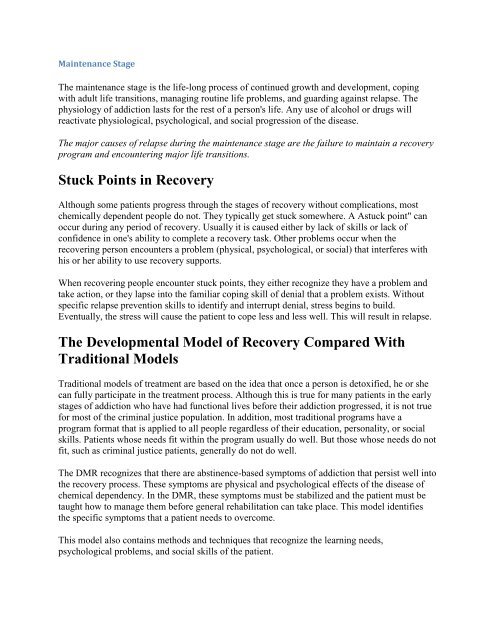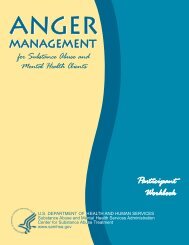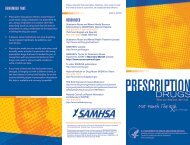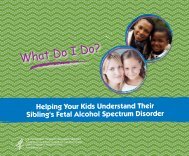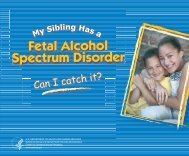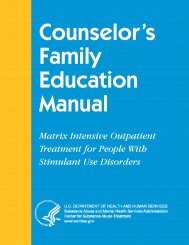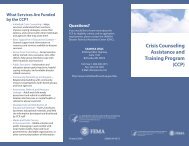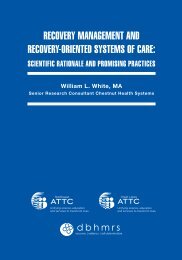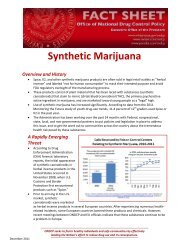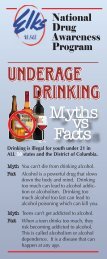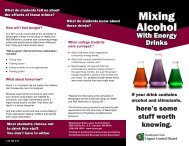Counselor's Manual for Relapse Prevention With Chemically ...
Counselor's Manual for Relapse Prevention With Chemically ...
Counselor's Manual for Relapse Prevention With Chemically ...
Create successful ePaper yourself
Turn your PDF publications into a flip-book with our unique Google optimized e-Paper software.
Maintenance StageThe maintenance stage is the life-long process of continued growth and development, copingwith adult life transitions, managing routine life problems, and guarding against relapse. Thephysiology of addiction lasts <strong>for</strong> the rest of a person's life. Any use of alcohol or drugs willreactivate physiological, psychological, and social progression of the disease.The major causes of relapse during the maintenance stage are the failure to maintain a recoveryprogram and encountering major life transitions.Stuck Points in RecoveryAlthough some patients progress through the stages of recovery without complications, mostchemically dependent people do not. They typically get stuck somewhere. A Astuck point" canoccur during any period of recovery. Usually it is caused either by lack of skills or lack ofconfidence in one's ability to complete a recovery task. Other problems occur when therecovering person encounters a problem (physical, psychological, or social) that interferes withhis or her ability to use recovery supports.When recovering people encounter stuck points, they either recognize they have a problem andtake action, or they lapse into the familiar coping skill of denial that a problem exists. <strong>With</strong>outspecific relapse prevention skills to identify and interrupt denial, stress begins to build.Eventually, the stress will cause the patient to cope less and less well. This will result in relapse.The Developmental Model of Recovery Compared <strong>With</strong>Traditional ModelsTraditional models of treatment are based on the idea that once a person is detoxified, he or shecan fully participate in the treatment process. Although this is true <strong>for</strong> many patients in the earlystages of addiction who have had functional lives be<strong>for</strong>e their addiction progressed, it is not true<strong>for</strong> most of the criminal justice population. In addition, most traditional programs have aprogram <strong>for</strong>mat that is applied to all people regardless of their education, personality, or socialskills. Patients whose needs fit within the program usually do well. But those whose needs do notfit, such as criminal justice patients, generally do not do well.The DMR recognizes that there are abstinence-based symptoms of addiction that persist well intothe recovery process. These symptoms are physical and psychological effects of the disease ofchemical dependency. In the DMR, these symptoms must be stabilized and the patient must betaught how to manage them be<strong>for</strong>e general rehabilitation can take place. This model identifiesthe specific symptoms that a patient needs to overcome.This model also contains methods and techniques that recognize the learning needs,psychological problems, and social skills of the patient.


